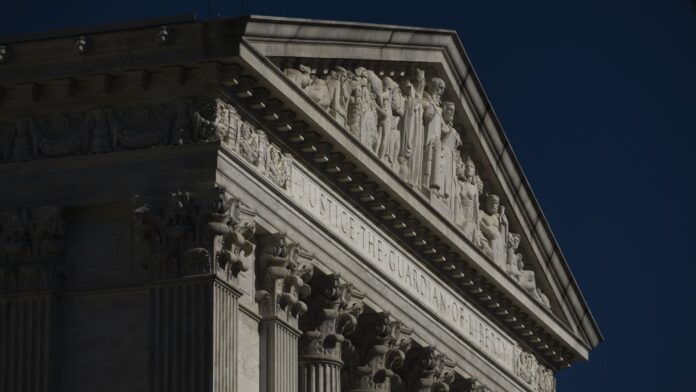A view of the backside of the U.S. Supreme Court on June 6, 2022 in Washington, DC. According to media reports,
Drew Angerer | Getty Images
The Supreme Court ruled Tuesday that state programs providing money for public school tuition cannot exclude schools that offer religious instruction.
The 6-3 decision relaxed longstanding restrictions on using taxpayer money to pay for religious education, further lowering the wall of separation between church and state.
At issue was a state program in Maine that made taxpayer money available to families who live in remote areas without public high schools. Under the state law, they could use the money for their children’s tuition at public or private schools in other communities, but not for sectarian schools, defined as those that promote a particular faith or belief system and teach material “through the lens of this faith.”
The court’s ruling said the restriction amounted to a violation of religious freedom.
Two years ago, in a case from Montana, the court ruled that when states make tuition money generally available, they cannot exclude schools that are run by religious institutions — that have, in other words, a religious status. But that decision left unresolved the issue of whether it would matter if the schools actually offered religious instruction.
The court has now answered that question, saying it doesn’t matter.
The case came to the court after two sets of parents in Maine sued, claiming the tuition program violated their religious freedom.
David and Amy Carson sent their daughter to Bangor Christian School and were therefore not able to receive the state tuition money.
“I like to view it as a continuation of the values and the way that we raised her at the house,” Mrs. Carson said in an NBC News interview. “The beliefs that the school has are aligned with what we have at the home.”
Troy and Angela Nelson sent their children to a nonsectarian school but wanted them to attend Temple Academy, which describes its purpose as “to know the Lord Jesus Christ and to make Him known through accredited academic excellence and programs presented through our thoroughly Christian Biblical world view.”
In defending the program, the state said it offers a free public education but that the families who filed the lawsuit wanted an entirely different benefit — a publicly subsidized religious education. Maine said it had decided that a public education should be “a non-sectarian one that exposes children to diverse viewpoints, promotes tolerance and acceptance, teaches academic subjects in a religiously neutral manner, and does not promote a particular faith.”
Parents were free to send their children to religious schools, it argued, but the state was not required to support them.
The Biden administration supported Maine’s position, saying the state was not playing favorites among various religious entities. That was a switch from the view the Justice Department took in the early stages of the case, during the Trump administration, when it said the state was engaged in religious discrimination.


